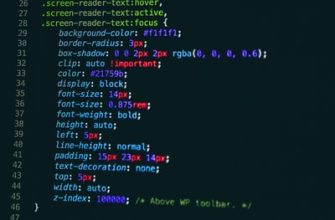When it comes to keyword phrases, it can be a little tricky. For instance, if you have a phrase that is too broad, your search engine may not be able to find the right phrase match for it. In addition, if you have a phrase that uses plurals or synonyms, you may not be able to make sure that they aren’t included as negative keywords.
Exact match
When it comes to Google ads, there are several different match types. Each type has different characteristics and serves a different purpose.
Exact match is the most targeted type of search. When you put a keyword into your ad, you’ll only get results for queries that use that keyword. This means that you will be reaching customers who are looking for exactly what you have to offer. Using an exact match can help your conversion rate.
Phrase match is a good in-between option for some keywords. It is a bit more restrictive than broad match, but you can still reach a wide audience. It gives you more control over how much you’re paying for your ad, and you’ll be able to eliminate irrelevant keywords.
Broad match
Broad match is a feature in Google’s search engine that is helpful when it comes to generating ad revenue. It works by matching your keywords to a large set of searches. This can increase your reach and expand your brand awareness. It may also be useful for novice advertisers, who don’t know much about keyword selection.
The Broad Match feature can bring you lots of clicks, but it may not necessarily generate the best results. You might end up spending your marketing budget on irrelevant clicks. You might lose conversions or Quality Scores. You’ll also have a hard time separating Brand from Non-Brand spend.

In order to get the most out of your ad campaign, you should use the correct match type. Choosing the right one can help you increase your sales.
Phrase match
Phrase match is a new type of match available through Google’s AdWords platform. It’s a great choice for advertisers who want a tighter focus on their customers. It allows for a narrower selection of keywords, and it also provides a greater chance for clickthroughs.
Phrase match is an ad platform that allows you to specify a keyword phrase, and then it will show ads only when that phrase is found in the search query in its exact order. It’s a bit more precise than the broad match and exact match, but it can still leave room for ad irrelevance.
It’s also an excellent choice for advertisers who have a niche product or service. A new business may have a tough key phrase, and the phrase match method is a good way to get ad traffic for that product.
Problems with keyword match types
In order to make the most of your pay per click marketing efforts, you must know how to choose the right match types. This is particularly important if you want to achieve a high return on investment.
The keyword match type you select will determine the types of searches your ad will appear for. It will also help you to control your audience. This means you will not show your ad to people who are not interested in your product or service.
Phrase Match and Exact Match are two keyword match types. Both are used to filter out irrelevant terms from search queries. However, they differ in several ways.
Exact Match keywords only display ads that include the exact word, phrase, or phrase phrase. This is a great match type if you have a brand name or branded term you would like to promote.
Adding synonyms and plurals as negative keywords
Negative keywords are important to Google Ads because they increase relevancy. A poorly executed ad can send a user to a page that isn’t relevant to their search. This can be frustrating for consumers and affect your Quality Score. Adding these keywords to your ad can help boost relevancy and reduce bounce rates.
Unlike other types of ad copy, negative keywords are not automatically included in Google’s search results. They must be added manually. In order to add them, you need to ensure that you include misspellings, plurals, and close variations of the exact phrase you want to avoid. You can do this by using a paid keyword research tool.
For example, if you run a shoe store, it’s a good idea to include the terms running and shoes in your negative keywords list. This will prevent an ad for “running shoe” from appearing. You can also use placement and content exclusions to filter out unwanted terms.








